My crown for June 5th was simple and a little bride-like – or so my friends told me. It consists of two flowers only: palest-pink beautybush (Kolkwitzia amabilis) and azalea ‘White Cascade’ (Rhododendron hybrid).
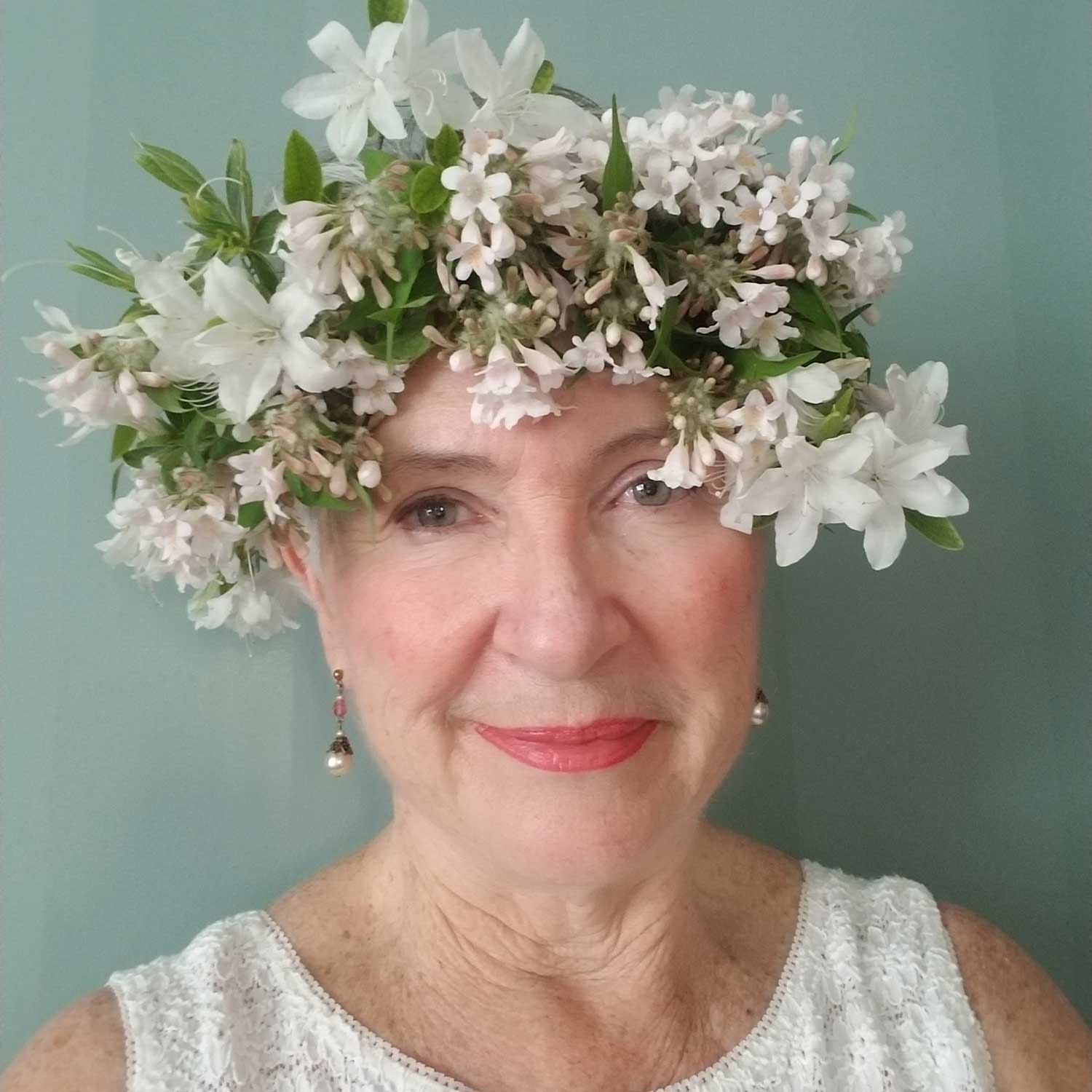
The Japanese have a special word for the view in the distance, the landscape framed by your property, the elements that exist outside your own space: they call it shakkei. For most of us, our borrowed scenery is not a distant mountain range or a bucolic meadow rolling to the ocean, but the plants and trees growing in properties adjacent to our own gardens.
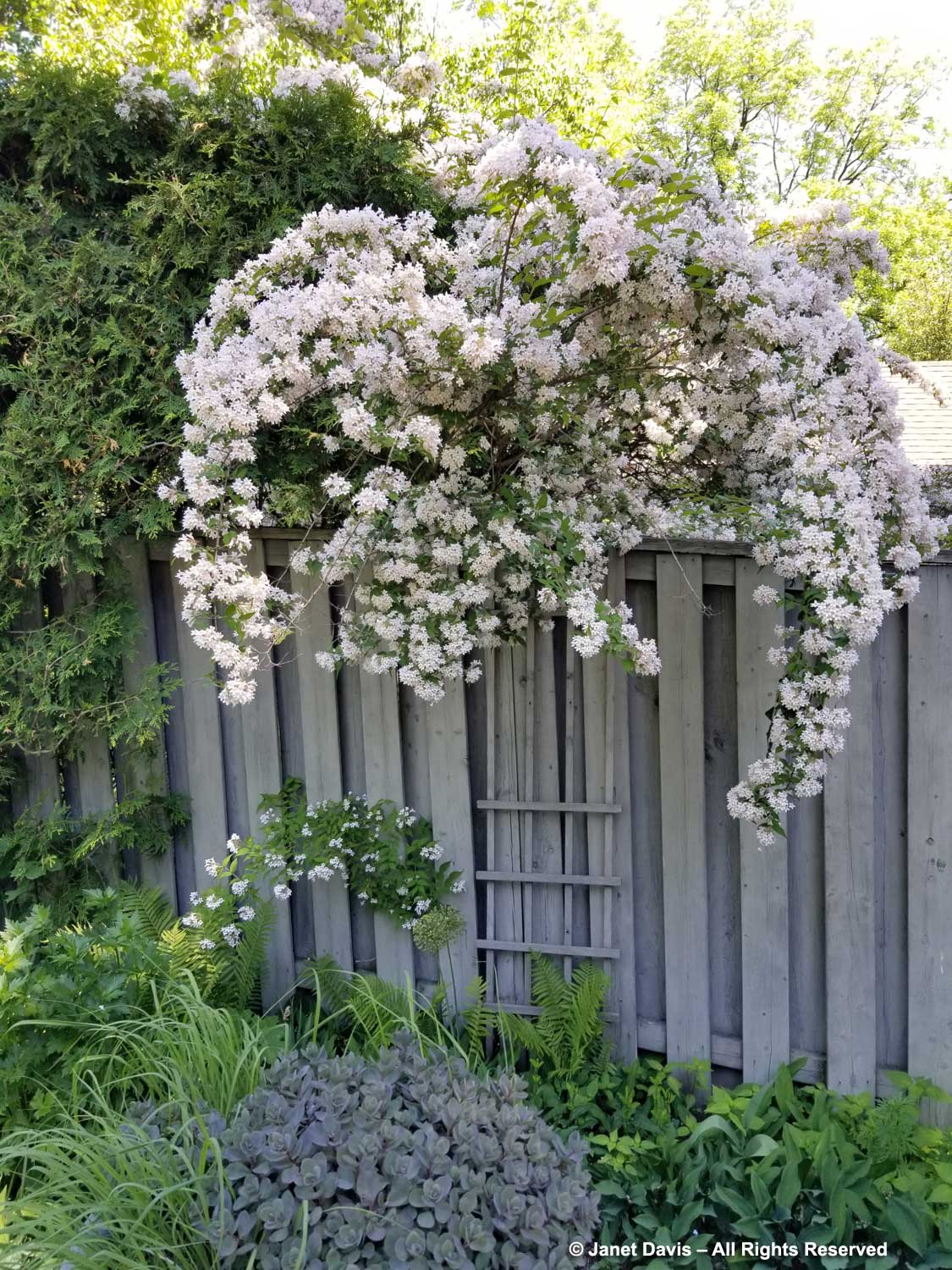
My shakkei is a pair of large beautybushes (Kolkwizia amabilis) belonging to my neighbour Claudette that cascade over my own fence and dominate the view along my side garden path, sometimes in late May but usually in early-mid June.
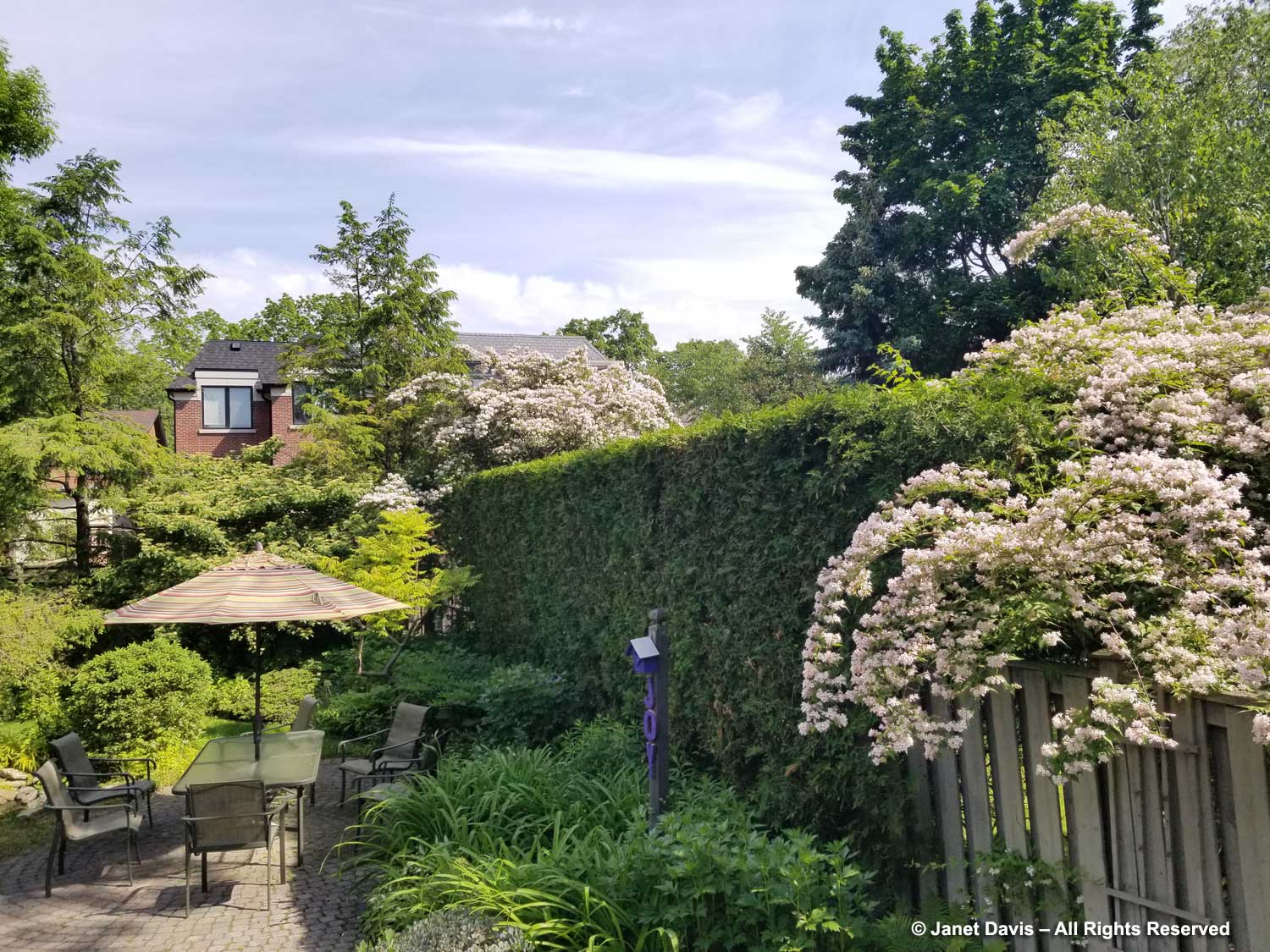
I thought Claudette — my neighbour for 39 years and a former French teacher — should be photographed for this blog with one of the progeny of her original shrub, and she kindly obliged. Merci beaucoups, madame.
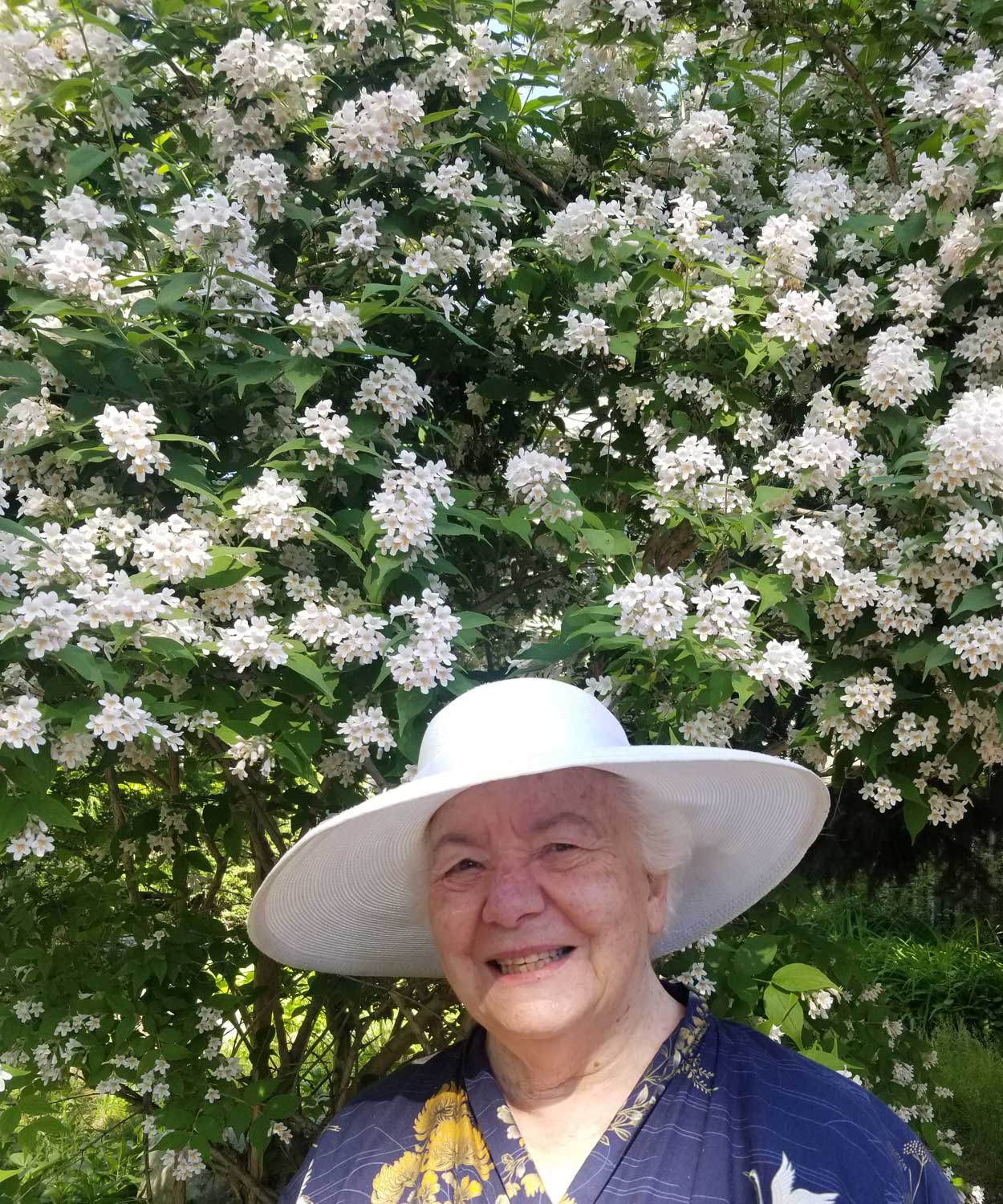
Beautybush is often called ‘old-fashioned’ but I rarely see it in residential gardens, or botanical gardens, for that matter, which is a shame because it is a majestic shrub in bloom. A member of the honeysuckle family and a cousin to weigela, it typically grows to 10 feet tall (3 m) with a vase-shaped, arching habit that you can see in my photos. Here it is in my friend Rob Proctor’s fabulous garden in Denver, which I blogged about a few years ago.
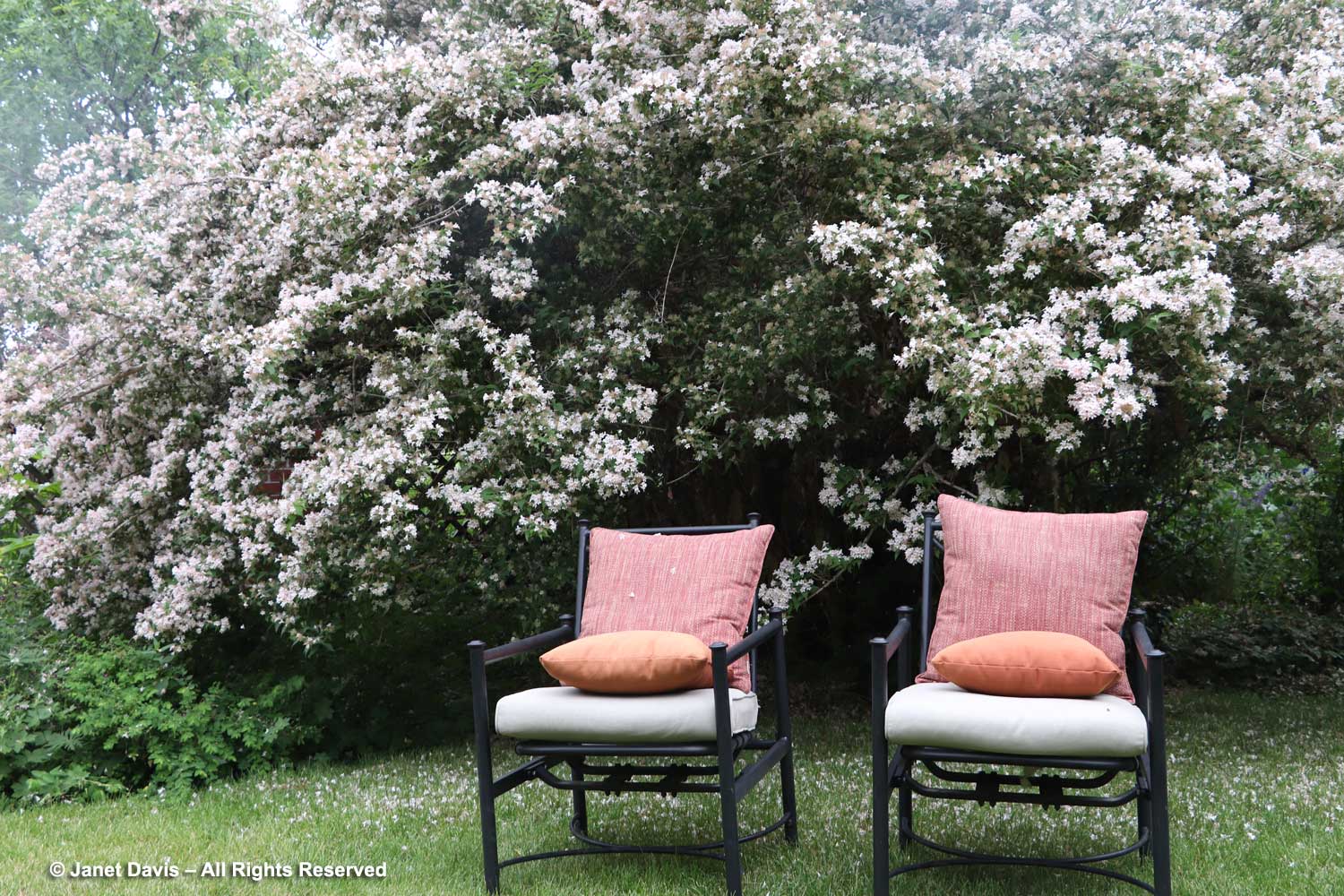
I love the story of the 1901 discovery of Kolkwitzia amabilis by legendary plant explorer Ernest ‘Chinese’ Wilson (1876-1930) while collecting in the mountains of Hubei, China for Veitch’s Nursery of England. The shrub was about 5 feet tall and out of bloom, though he recorded in his notes that it had spinose fruits. He collected seeds which Veitch’s grew on until, six years later, small plants labeled as “Abelia” were sent to Boston’s Arnold Arboretum where Wilson had been employed. Finally, in June 1915 the shrubs flowered for the first time. According to a story in Arnoldia, the Arboretum’s newsletter, “Their early-summer displays of pink blossoms, profusely borne on arching branches, so impressed Wilson and others that it was christened beautybush.”
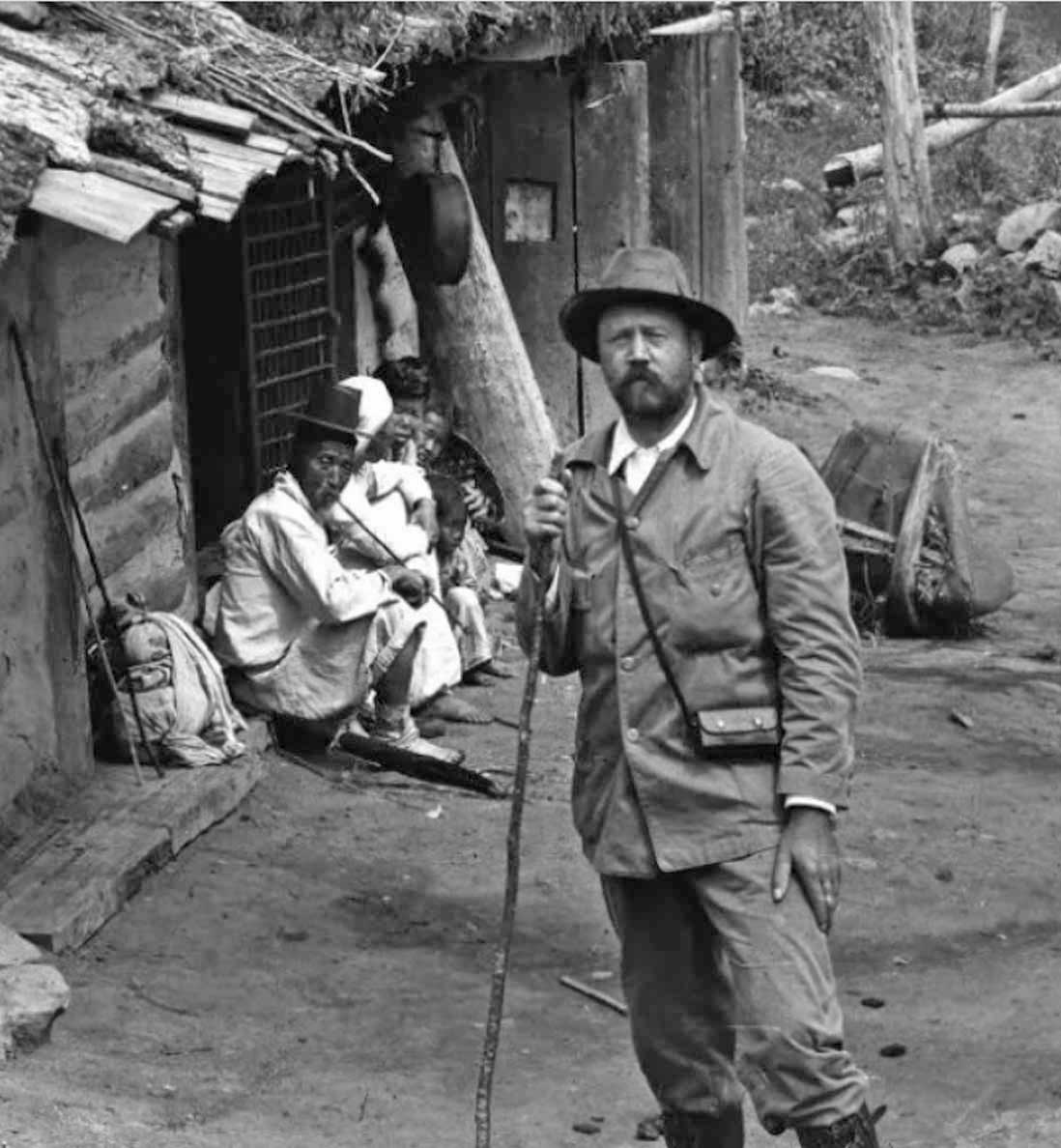
Seeing it in Claudette’s garden in full flower with swallowtail butterflies…
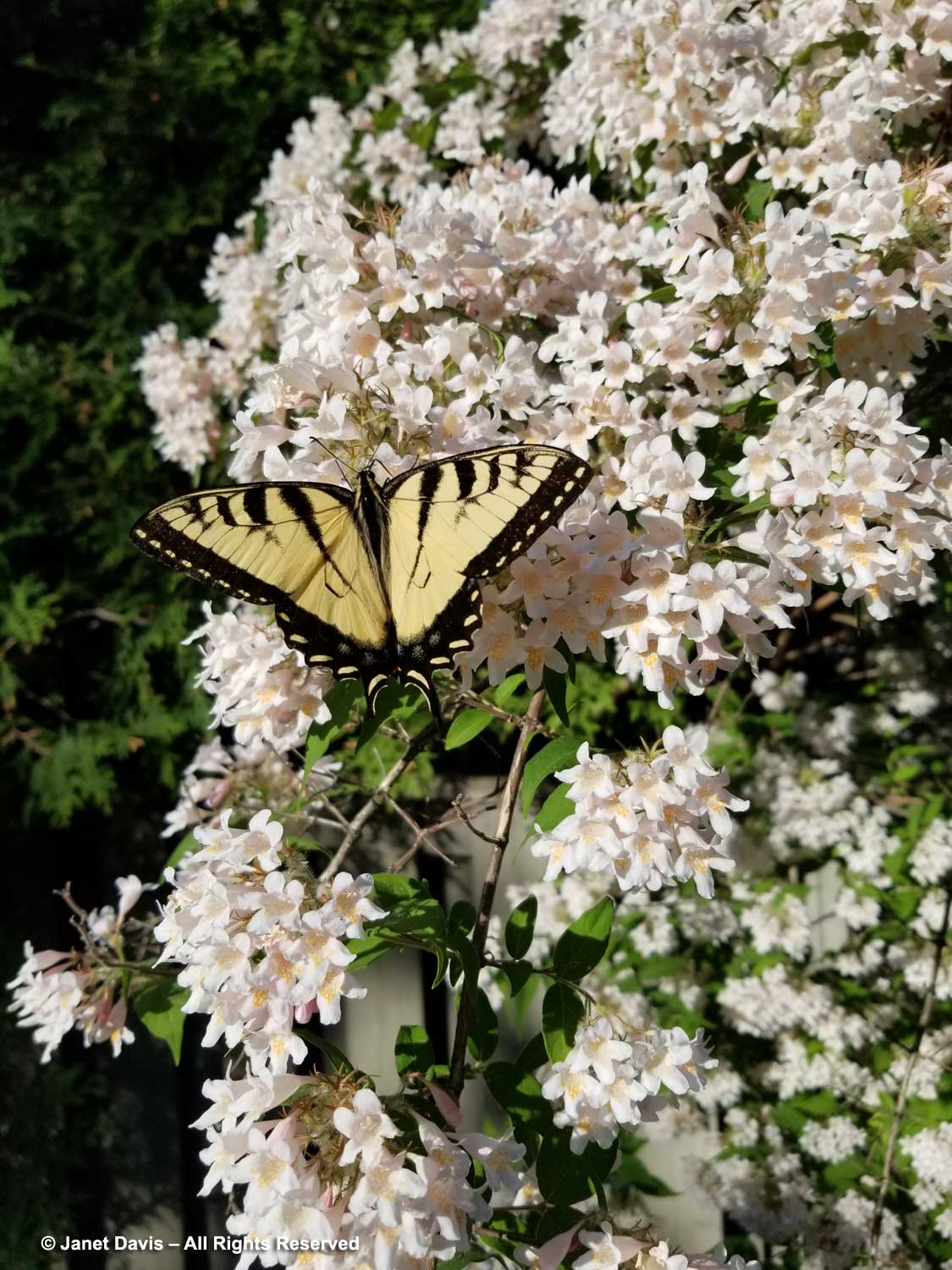
…..and bumble bees competing to forage in the pale-pink blossoms flecked with amber nectar guides, I cannot help agreeing with its discoverer.
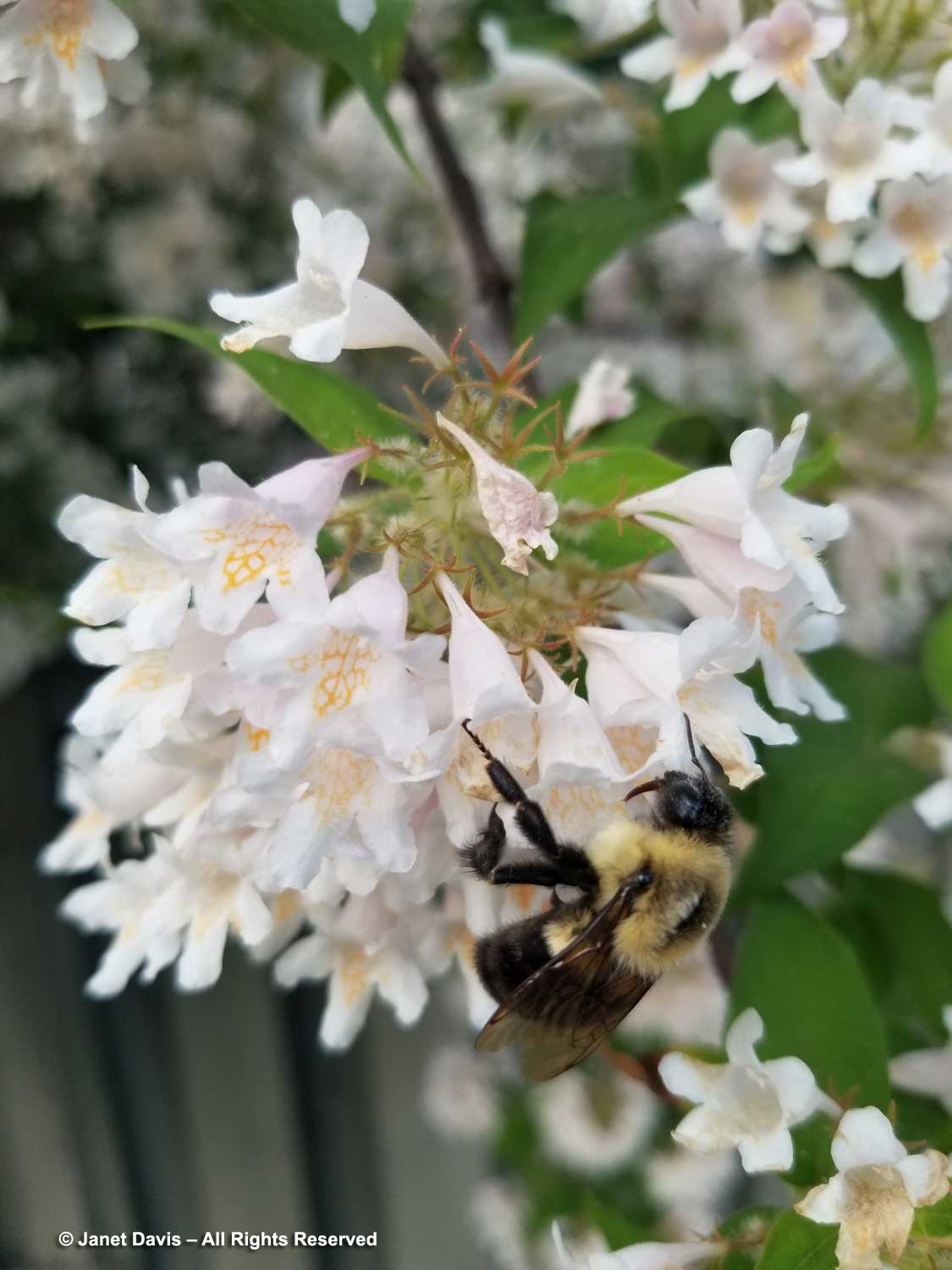
Here’s a little video I made of insects enjoying the flowers:
And though I wouldn’t consider it a prime candidate for floral design, here’s a very tiny bouquet that shows the inner markings of the corolla.
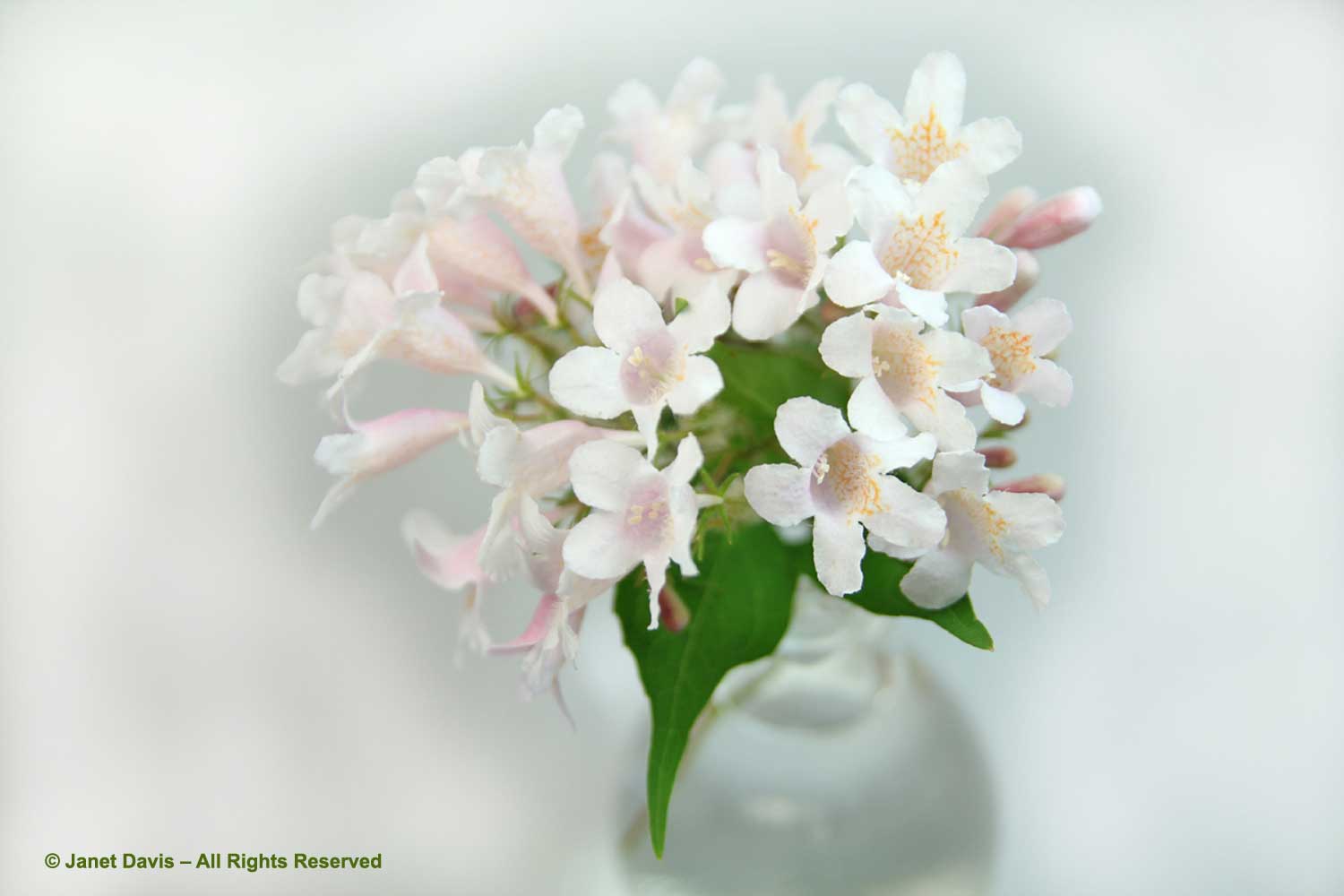
Much of my love of gardening came from watching my mother tend her garden in the suburbs of Vancouver, British Columbia in Canada’s mild ‘banana belt’. She grew camellias, magnolias, flowering cherries and a collection of brilliantly-colored Japanese azaleas – and I was her willing student. Though I garden in a much colder climate, in her honor I planted the ultra-hardy ‘Cascade’ azaleas (Rhododendron ‘Cascade’) beneath my sundeck. It is the sole survivor of many rhododendrons I planted over the decades, most of which eventually succumbed to imperfect conditions or summer drought. But ‘Cascade’ kept ticking along, and is an important color component of this little white-and-green-hued area, along with old-fashioned, white-edged Hosta undulata var. albo-marginata.
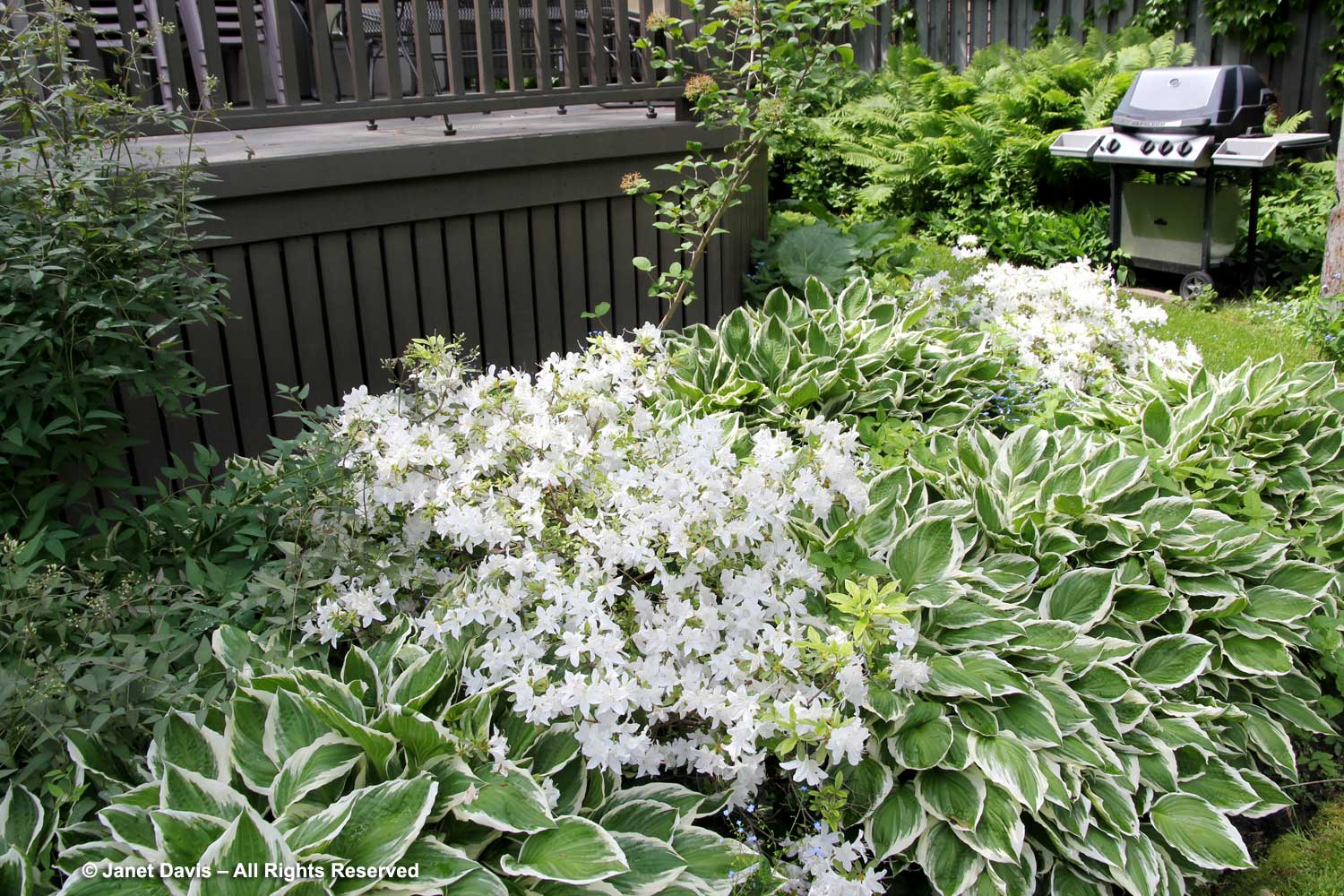
Here it is with my romping Siberian bugloss (Brunnera macrophylla) peeking through the flowers.
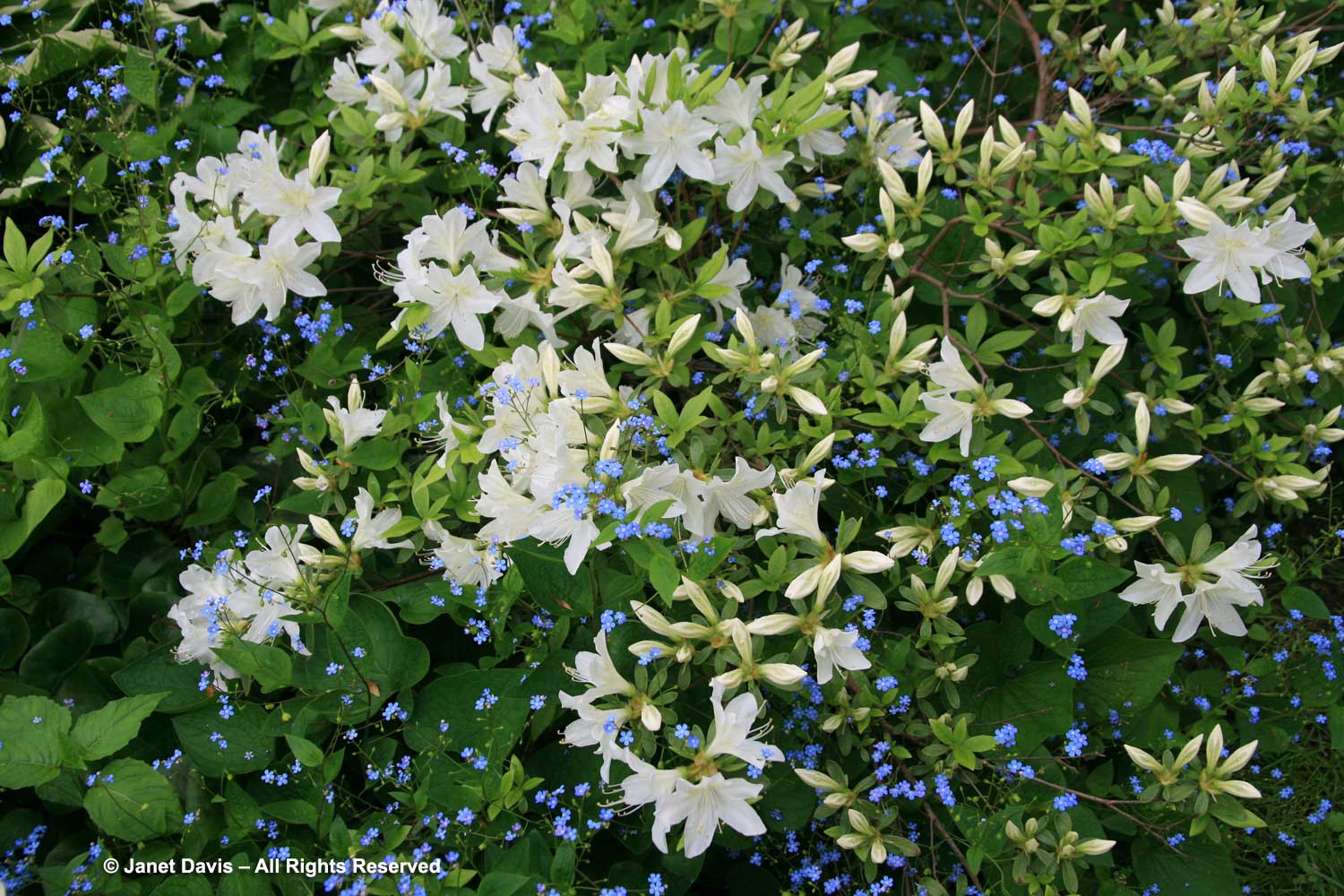
The fairy crowns are coming fast and furious now – it’s a job trying to keep up! Want to see more from earlier this season?
#1 – Spring Awakening
#2 – Little Blossoms for Easter
#3 – The Perfume of Hyacinths
#4 – Spring Bulb Extravaganza
#5 – A Crabapple Requiem
#6 – Shady Lady
#7 – Columbines & Wild Strawberries on Lake Muskoka
#8 – Lilac, Dogwood & Alliums
